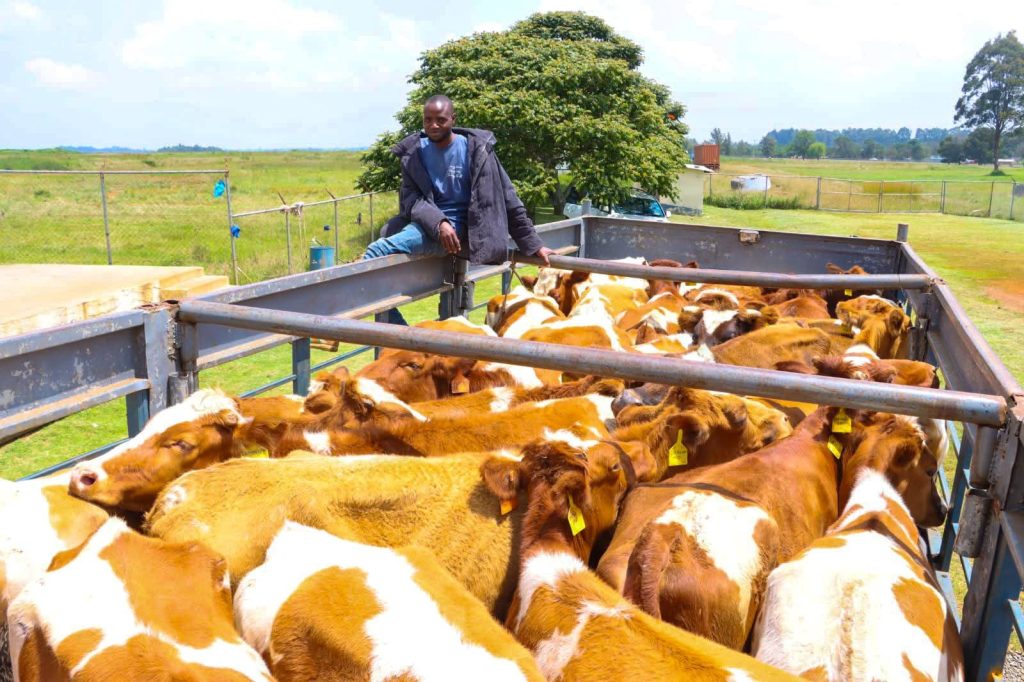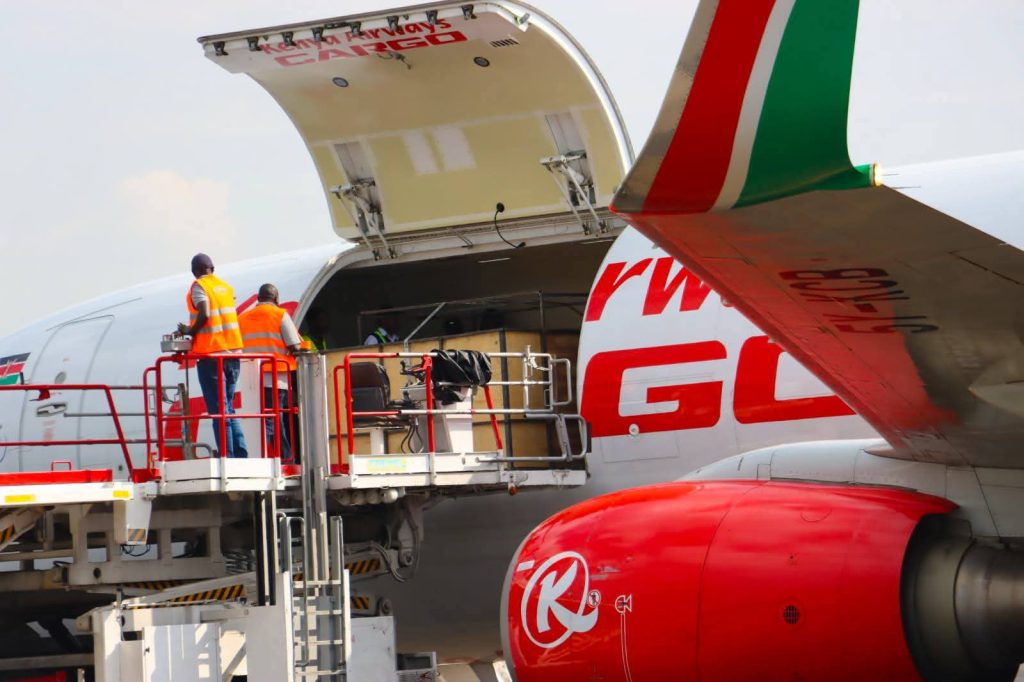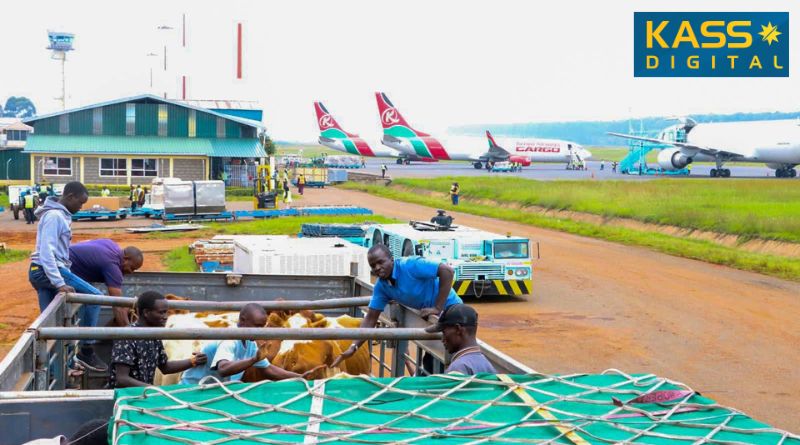Uasin Gishu County Exports 50 In-Calf Ayrshire Heifers to Nigeria
By Timothy Kiplimo || Kass Digital
In a major milestone for Uasin Gishu’s livestock industry, 50 in-calf Ayrshire heifers have been successfully exported to Nigeria, marking a significant step in the county’s mission to economically uplift farmers while positioning itself as a leader in quality livestock production.

The heifers, sourced by Kinanie Agrovet Suppliers Ltd from farmers across the county, were flown out of Eldoret International Airport – marking Uasin Gishu’s first-ever air export of livestock to West Africa.
Speaking during the flag-off event, Chief Officer for Agriculture and Livestock Development Eng. Abraham Kiptalam credited the milestone to the county’s proactive measures in the livestock sector.

“This is the outcome of Governor Bii’s strong commitment to livestock development,” said Eng. Kiptalam. “From subsidized AI services and revamped cattle dips to enhanced disease control and extension support, our initiatives have improved breed quality and opened global market opportunities for our farmers.”
The Head of Veterinary Services at Jomo Kenyatta International Airport Dr. Ibrahim Mohammed commended Uasin Gishu’s strict adherence to export standards, noting the importance of maintaining these protocols for continued access to international markets.
He emphasized that while this is the first shipment to Nigeria from the devolved unit, Uasin Gishu has a potential to export to many other countries.

Dr. Sylvester Malei, Director of Kinanie Agrovet Suppliers Ltd, confirmed that several countries across the Middle East, West Africa and East Africa are expressing interest in importing Uasin Gishu livestock.
Dr Malel added that the heifers have met stringent international health and production standards noting that this reflects the strength of Uasin Gishu County veterinary infrastructure and the commitment local farmers.
Uasin Gishu County livestock has already entered markets in Rwanda, Uganda, and Tanzania—with countries like Saudi Arabia expressing interest.




